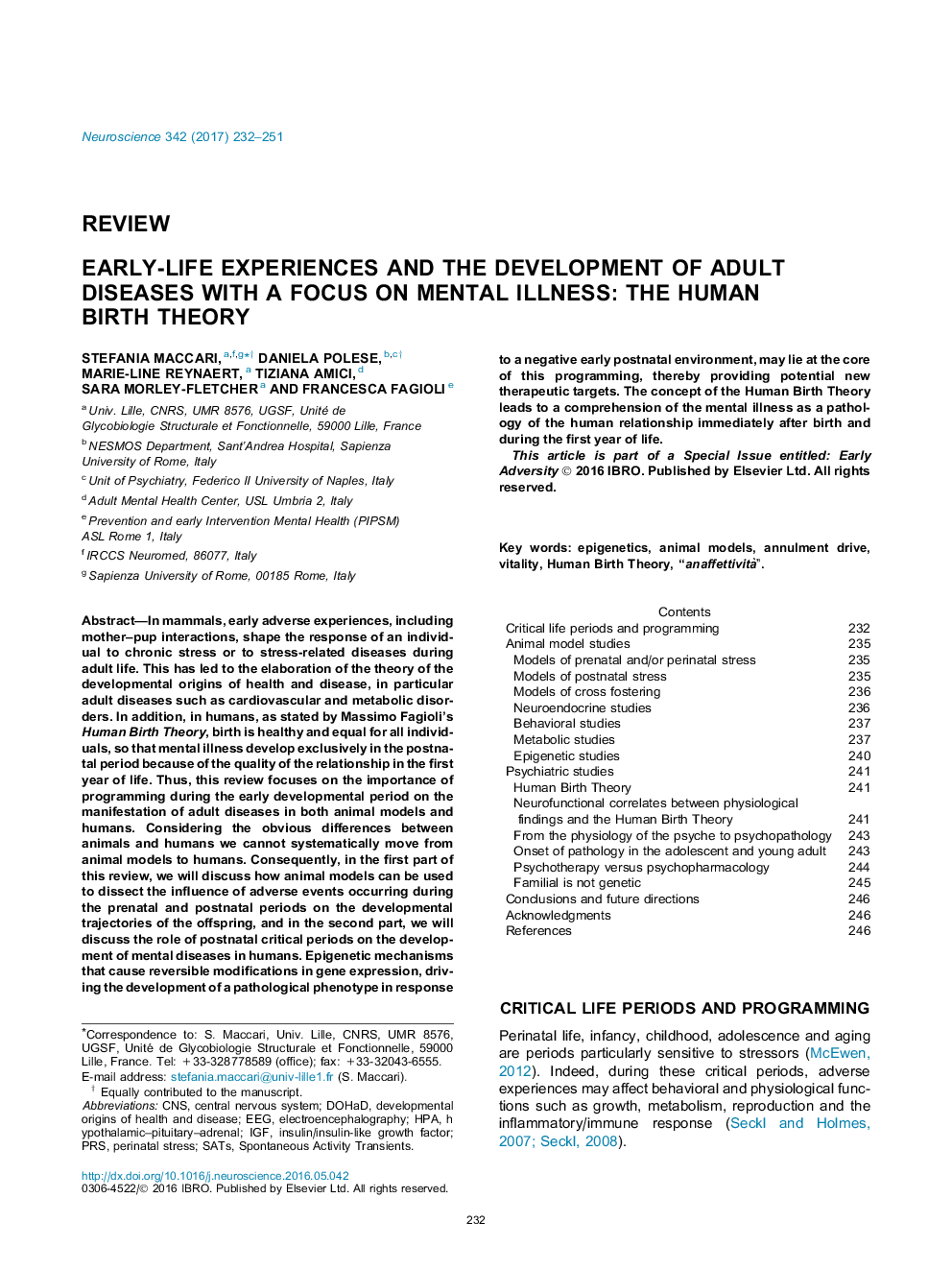| کد مقاله | کد نشریه | سال انتشار | مقاله انگلیسی | نسخه تمام متن |
|---|---|---|---|---|
| 5738029 | 1614734 | 2017 | 20 صفحه PDF | دانلود رایگان |
- Prenatal stress induces reduced maternal care during the postnatal development of the offspring.
- Postnatal adoption, which improves maternal care, corrects the effects of prenatal stress.
- In the human species, negative postnatal factors might occur and determine mental diseases.
- Newborns are equal at the time of birth and mental illness occurs afterwards.
- The concept of the Human Birth Theory leads to a comprehension of mental illness.
In mammals, early adverse experiences, including mother-pup interactions, shape the response of an individual to chronic stress or to stress-related diseases during adult life. This has led to the elaboration of the theory of the developmental origins of health and disease, in particular adult diseases such as cardiovascular and metabolic disorders. In addition, in humans, as stated by Massimo Fagioli's Human Birth Theory, birth is healthy and equal for all individuals, so that mental illness develop exclusively in the postnatal period because of the quality of the relationship in the first year of life. Thus, this review focuses on the importance of programming during the early developmental period on the manifestation of adult diseases in both animal models and humans. Considering the obvious differences between animals and humans we cannot systematically move from animal models to humans. Consequently, in the first part of this review, we will discuss how animal models can be used to dissect the influence of adverse events occurring during the prenatal and postnatal periods on the developmental trajectories of the offspring, and in the second part, we will discuss the role of postnatal critical periods on the development of mental diseases in humans. Epigenetic mechanisms that cause reversible modifications in gene expression, driving the development of a pathological phenotype in response to a negative early postnatal environment, may lie at the core of this programming, thereby providing potential new therapeutic targets. The concept of the Human Birth Theory leads to a comprehension of the mental illness as a pathology of the human relationship immediately after birth and during the first year of life.
159
Journal: Neuroscience - Volume 342, 7 February 2017, Pages 232-251
